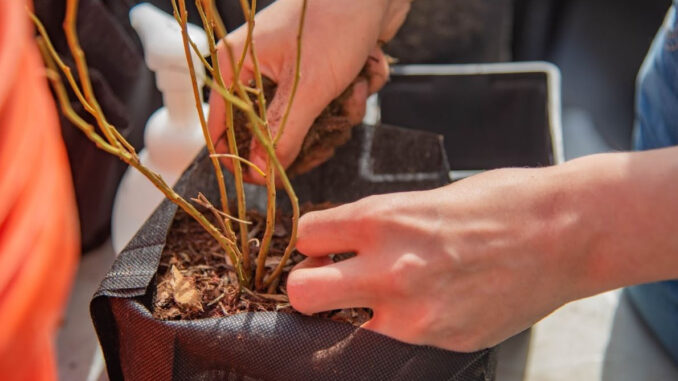
Emma Polen | Editor-in-Chief
In its third semester as an official school-recognized committee, the University Sustainability Committee is putting their resources to work across campus.
According to Sarah Wright, chair of the nine-person advisory body of the committee, the University Sustainability Committee has been in the works for over two years.
The committee is made up of faculty, staff and students, with a connection to facilities management as well.
Even before the committee was officially recognized, the faculty and staff “were still doing all of this really incredible, sustainable work,” Wright said.
Now, the committee’s goals include supporting and promoting the work of preexisting clubs working on campus sustainability, Wright said.
“It’s from the ground up, it’s students doing this work, and we’re just facilitating working with them to help,” Wright said.
The benefit of the official “committee” title is the available resources for spreading the word. Wright is most excited about facilitating more relationships across campus.
“Now we can more strategically do that work and reach more people,” Wright said.
The committee is currently involved in connecting sustainability efforts from campus and the broader Pittsburgh area with the Duquesne community.
On Sept. 8, Laval Day at Duquesne, Bike Pittsburgh will come table on A Walk to promote their green city efforts.
First, the University Sustainability Committee added a new member, faculty member Leda Kloudas, who teaches biomedical engineering. Her expertise differs from the other faculty on the committee, and this “interdiscipline” was part of the initial goal of the committee as well, Wright said.
“Sustainability at its core is interdisciplinary,” Wright said.
For this reason, the committee’s members are also co-teaching a Climate Change, Resilience, and Sustainability course. This is the inaugural year of the class, and it will most likely be offered every fall semester moving forward, Wright said, in addition to counting for theology credit.
“[We’re] hoping to show students that conversation in sustainability is a campus-wide one,” Wright said.
The committee is also interested in getting campus feedback about what projects they should tackle next, and with the help of, Duquesne’s Center for Environmental Research and Education, they are on their way.
Mary Kate Ranii, program administrator of CERE, explained how CERE was involved with the creation and project work of the committee. The committee work has never been part of her job description, Ranii said, but it is something she wants to do nonetheless.
CERE has been working on campus sustainability for the past several years.
“Our coursework in the environmental science department always has a ton to do with sustainability and environmental issues,” Ranii said. CERE hosts an online reuse listing, posts a clothing drive and clothing donation bin in Towers to be donated to Saint Vincent de Paul and also sends out a fall and spring sustainability newsletter.
With the help of CERE and the Deans at the School of Science and Engineering, the University Sustainability Committee has put out a call for working groups. The first call was made last semester, and was received with enthusiastic response from faculty and staff campus-wide, Wright said, especially toward current campus garden projects.
Wright understood the appeal for getting involved in visible, tangible garden initiatives.
“A lot of joy…can come out of green spaces, and a lot of opportunity and potential,” she said.
“We want the campus to be involved…to get their participation in helping Duquesne, live out [what] Pope Francis is calling LaudDC, and just generally, living out that Spiritan mission of serving God by serving others,” said David Chismar, a steering University Sustainability Committee member.
Chismar is the supervisor in energy management and forecasting at Duquesne. His hope with the committee is getting people more involved in the executive aspects of campus sustainability, and facilities assisting these roles.
“Just by getting everybody integrated together, we can make sure that we are supporting each other, not working against each other or duplicating each other’s efforts,” Chismar said.
Future projects include employing students that could benefit from making connections with groups that already exist for sustainability on campus, in an attempt to “tell students that they can be integral,” Wright said.
Such groups include the university food pantries, community gardens and dining halls’ takeout services.
The goal is to “think more consciously about consumer and consumable items on campus,” Wright said. “Are there ways to cultivate more sustainable use?”
The committee’s mission, since the beginning, is “sharing the love and the care for the world and the people that live in it,” Wright said.
To get involved, students can email Wright at wrights3@duq.edu with ideas for potential new sustainability projects or who want to join working groups that already exist across campus.

